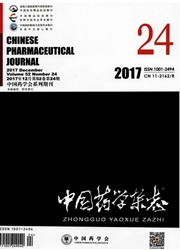

 中文摘要:
中文摘要:
目的观察抗乙型肝炎病毒(HBV)核苷类似物替诺福韦体外对HBV复制的抑制作用。方法噻唑蓝(MTT)比色法检测药物对细胞的毒性作用。将乙型肝炎病毒复制子pHBV1.3质粒转染HepG2细胞,在转染细胞培养液中加入不同浓度的替诺福韦,然后在不同时间段观察替诺福韦的抗病毒作用。ELISA检测培养上清中HbsAg,HBeAg的表达,荧光定量PCR(FQ-PCR)定量检测培养上清中HBV DNA拷贝数,Southern blot分析转染细胞中HBV复制中间体。结果替诺福韦降低了培养上清中HbsAg,HBeAg水平及HBV DNA拷贝数,抑制了转染细胞中HBV复制中间体的形成。替诺福韦对HBV复制子体外复制的抑制作用依赖于药物浓度及作用时间。结论替诺福韦在体外对HBV复制有较强的抑制作用,有望用于临床治疗慢性乙型肝炎。
 英文摘要:
英文摘要:
OBJECTIVE To observe antiviral effect of tenofovir, a potential antiviral nucleoside analogue, against HBV replicon in vitro. METHODS Hepatitis B virus replicon pHBV1.3 plasmid, a containing 1.3 copies of HBV genome was transfected into HepG2 cell line, and different concentrations of tenofovir were added to post-transfection cells medium. The levels of HBsAg, HBeAg and HBV DNA in supematant of HepG2 cells were measured by ELISA and FQ-PCR, respectively. Intracellular HBV replicative intermediates were analyzed by Southern blot. RESULTS Tenofovir inhibited HBV replication in HepG2 cells transfected with pHBV1.3. The levels of HBsAg, HBeAg and HBV DNA in supematant of HepG2 cells treated with tenofovir were remarkably reduced, and intracellular HBV replicative intermediates were also decreased. The inhibition effect oftenofovir depended on the drug dose and action time. CONCLUSION Tenofovir strongly inhibited HBV replication in HepG2 cells transfected with pHBV1.3 plasids, tenofovir may be further used in clinic for chronic hepatitis B therapy in future.
 同期刊论文项目
同期刊论文项目
 同项目期刊论文
同项目期刊论文
 期刊信息
期刊信息
